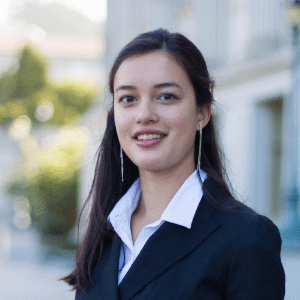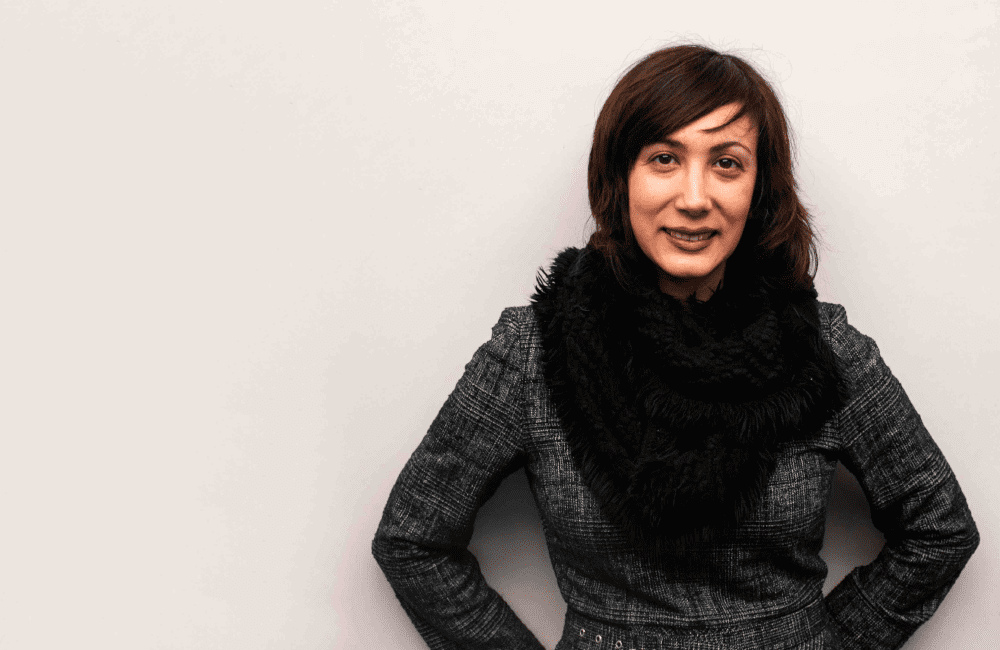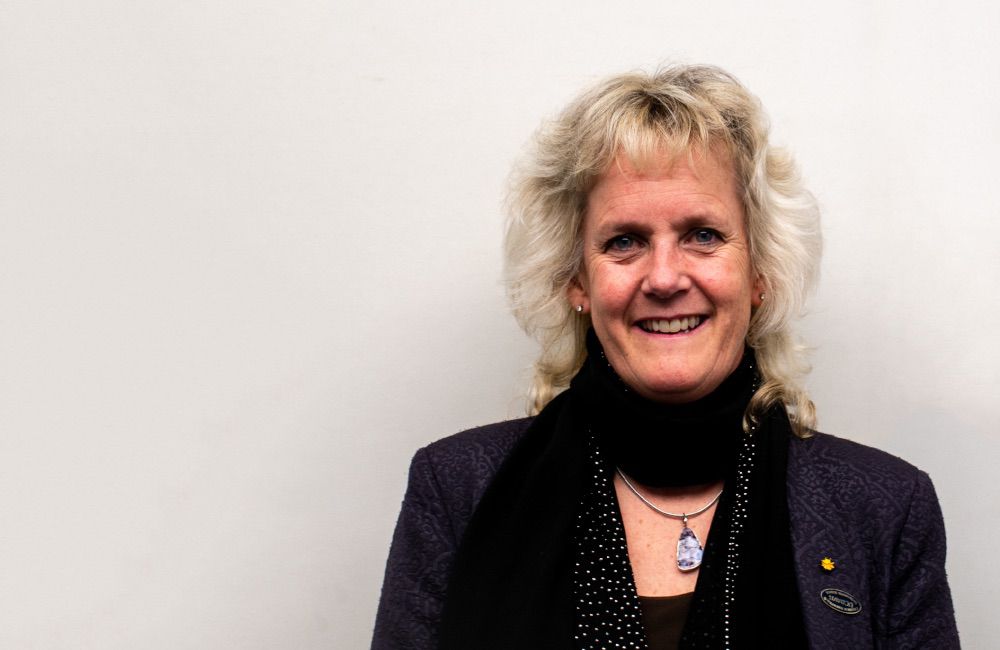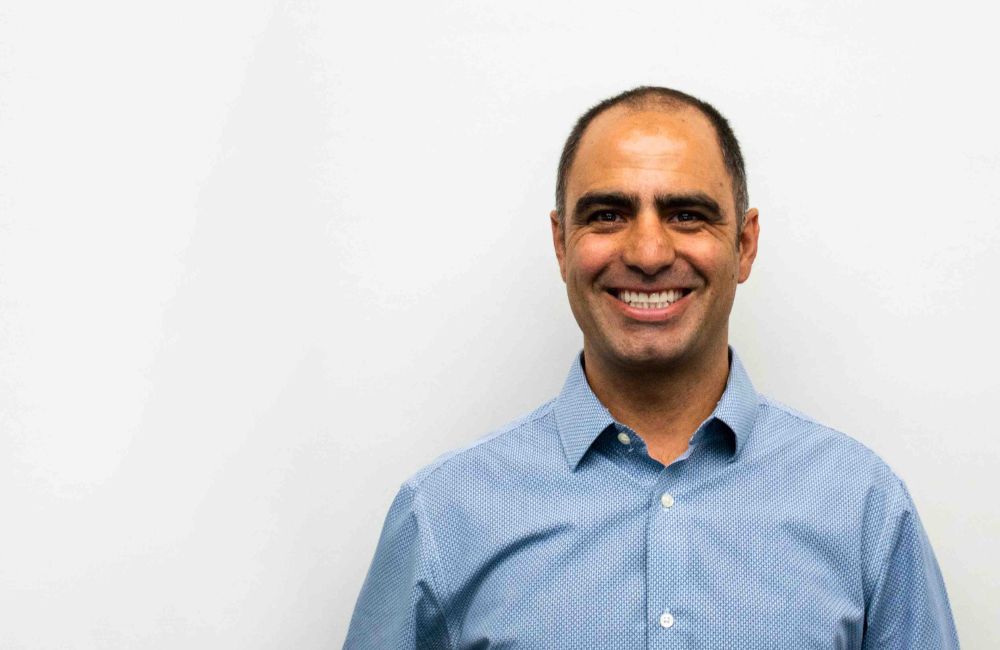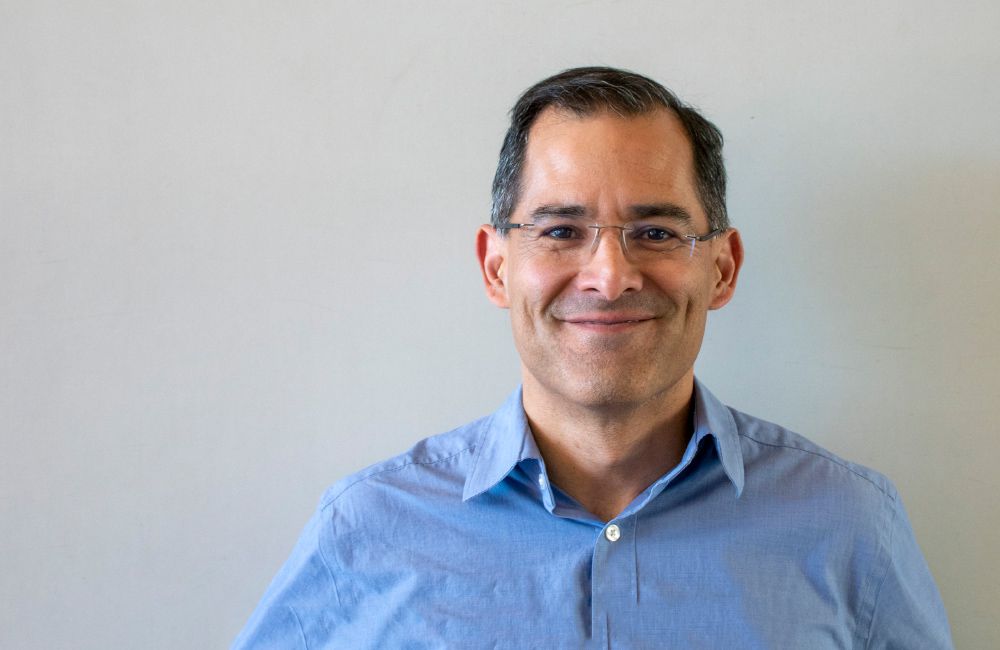
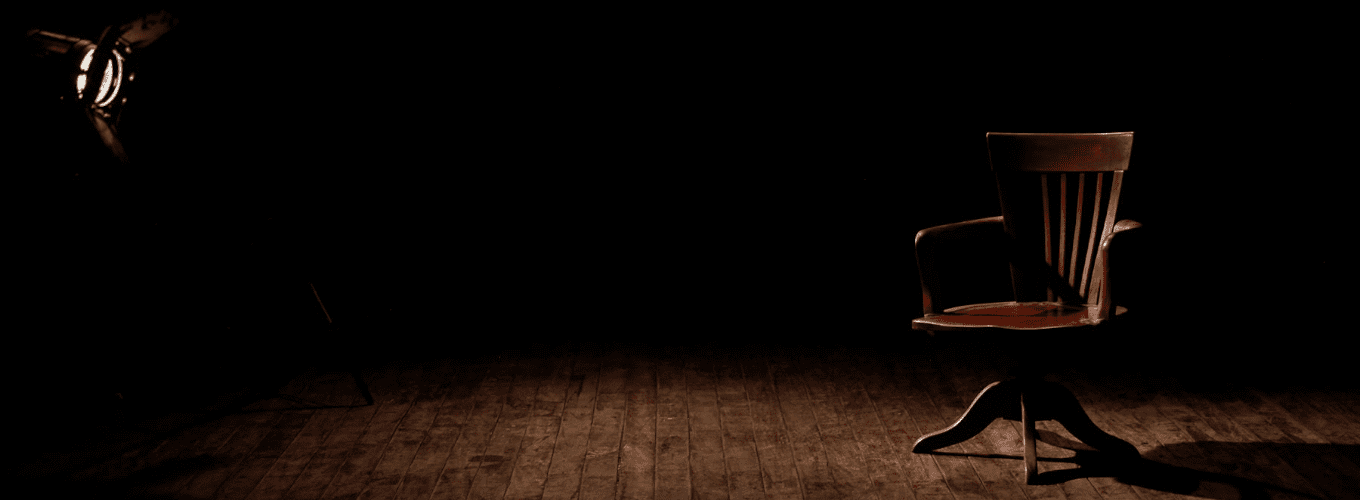
Undergraduate science communication intern Mira Cheng sits down with speakers from the weekly IGI Seminar Series to discuss their innovations, motivations, and eclectic hobbies.
Dr. Kathryn Whitehead is an Associate Professor in the Department of Chemical Engineering at Carnegie Mellon University. I interviewed Dr. Whitehead when she spoke at the IGI on January 28th, 2020. An abridged version of our conversation appears below.
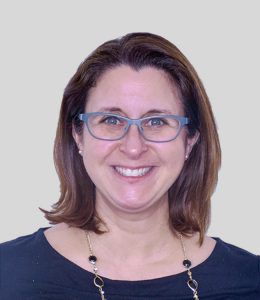
MC: Could you please tell me a little bit about your journey in becoming a scientist?
KW: “When I was in high school, I really enjoyed chemistry and I loved math. So when it was time to make a decision about my undergraduate studies, I didn’t know what chemical engineering was, but I thought I would try that. It was actually kind of difficult because I also loved writing and English and so I was thinking about being an English major. Two very different choices, but ultimately I am an engineer and very practical, so the practicality won out. I had no idea at the time how much writing I would do as a scientist, so in some ways, both of my ideas have come true.”
MC: What is the hardest challenge that you’ve had to overcome in the journey to where you are as a scientist today?
KW: “There are many challenges that I think [scientists] have to overcome. I think the transition to a full-time faculty position—when that first occurred for me seven years ago—that [was] a time of a lot of transition. You’re really vulnerable, you’re new, you’re trying to create a reputation for yourself. And honestly, most people don’t really know what they’re doing: what kind of lab persona to create, what type of science to pursue. I was trying to do what I thought I was supposed to do. And it took me a couple of years to figure out that I would be much happier if I did what I wanted to do, instead of what I thought I should do. So for the last five years or so I’ve been having an awful lot more fun, pursuing projects that are either closer to my heart or just speak to different interests that I have. I really like to think of crazy ideas and go after those ideas; the creative process has been really important to me. Most people aren’t born as creative geniuses, it’s very much a learned skill.”
MC: How did you come to work on the project that you presented today in your seminar?
KW: “I’ve been working in the RNA delivery space for over a decade now. I started my postdoc position in 2008, which was the heyday of siRNA delivery. I was really attracted to this concept of creating medicines that could control our genes on a personalized level. I just thought that was amazing, so I wanted to be part of enabling that. As [I have] moved into my own lab, in part, I’ve been driven to pursue problems where there just aren’t many answers so far. I really like it when there are open-ended questions, where just about anything we find is going to be important. I’m really attracted to those types of problems. And of course we have to be cognizant of what there’s money to work on as well. The work I spoke about today—there is financial interest in that space—which is important because then you’re able to hire good people to do the work.”
MC: What do you hope to achieve with this project?
KW: “My end goal is to understand the chemistry of delivery particles, such that we could predict what chemistry we need to make to deliver RNA to any cell type that we want. To just be able to draw the structure, write it down and not have to do any kind of advanced testing before testing in humans. And I feel like it has to be possible because when you introduce a chemistry into the body, our body knows exactly what to do with it right away. We should be able to figure it out. But it’s not clear that our experimental methods or our computational methods are going to be sufficient to do that in my lifetime. I hope [they] will be.”
MC: Why is it important to you to work in a collaborative, multi-disciplinary lab environment?
KW: “In the drug delivery space, working in a multidisciplinary environment, working with people from a variety of backgrounds, is critical to the success of projects because there’s nothing about delivery that’s one-dimensional. Engineers have their role because we’re trained to optimize things, chemists are extremely important because they are creating the molecules that we’re working with, and then because we’re applying [these technologies] to biological problems, without the biologists we’re absolutely lost. So we really need all those different types of people in the lab. It’s [also] essential to work with clinicians and people who are in the process of translating technology because there are things that you could easily overlook at the more fundamental science level that [are] going to be critical for the translation of a particular technology.”
MC: Where do you see your field in ten years?
KW: “Ten years is about the amount of time that it takes to get something from the lab into a person, and hopefully have it FDA-approved. So in ten years I think a lot of the exciting discoveries that we’re seeing right now at the basic science level are going to have pushed through to the point where we might be seeing them used in people. Given how intricate and elegant some of these genetic solutions are, I think we’re going to have an explosion of gene therapy solutions that are on the market in ten years. But I also know that there [will still] be a huge number of unsolved problems in ten years. Trying to genetically engineer cells that are outside of the liver, outside of the immune system, is going to continue to be a challenge and so I think we’re going to be in business for a long time.”
MC: As gene therapies become more popular, what changes will be necessary to make them equally available to everyone?
KW: “I think the solution is going to be multifaceted, if we really are going to make these types of drugs accessible to people from all socioeconomic backgrounds. One, I think we’re going to have to have some federal regulations that are changed. Right now, the incentives simply aren’t in place for companies to promote the production of products that don’t turn big profits. Another is that as companies do more [gene therapy development], they’re going to get better at it, so the prices should actually come down to some extent, but I think we’re going to need regulation on top of that. A third aspect is the FDA. The FDA is used to having a very specific process in place to ensure the safety and efficacy of these drugs, and that level of rigor is simply not going to be possible, particularly for [drugs developed for] small populations.
The other [aspect] is really more complex and more ingrained. As scientists, we receive money from agencies and foundations that by and large are concerned with First World problems, and are being driven by the interests and the money of people who are wealthy. Scientists have a hard time raising money, so if somebody wants to pay us to develop a drug, we do it because we want to help people regardless of their background. The problem is: where does the money come for the development of drugs for people who perhaps don’t have those resources? There are some foundations, like the Gates Foundation, that are helping with that, but there aren’t enough of them. We need to see more money invested in those directions if we want to really make sure that these drugs are accessible to everyone.”
MC: Why is your lab mascot the honey badger?
KW: “The honey badger is really tough animal. It is a persistent animal, it has tough skin, it resists predators. It goes and it gets whatever it wants, even though it’s fairly small. I just really liked the attitude of this animal because I felt that success in science often has more to do persistence and tenacity than it does with luck, or skill, or any of these other things. At the time I applied for faculty positions, I think I applied to about 77 different faculty positions. With that number of applications comes a lot of rejection, understandably, so instead of sitting around licking my wounds I thought it would be more interesting to print out all of my rejections. I would highlight the key phrases in the rejection letters, such as ‘we had a very competitive pool and you did not rise to the top,’ or, ‘Dear Dr. Whitehall,’ which is not my name. I posted them on the wall in my office, and people would flock in to see what rejection letters I was getting every week—I called it the honey badger wall. The rest of my labmates thought that was pretty good so they got me a stuffed honey badger, and they started calling me the honey badger. So I took that stuffed honey badger with me to Carnegie Mellon and every year, at my State of the Union Address for my lab, I talk about the honey badger and about how I want my researchers to embrace some of those qualities.”
MC: What is something that you do a lot that people wouldn’t necessarily expect?
KW: “I will preface this by saying that, once you have children, your children eat up almost all of your spare time. But the one thing that I still do a lot of because I really love it, is gardening. So in the summer, I go crazy with a vegetable garden. I particularly love growing tomatoes. I usually grow between 15 and 20 different varieties of tomatoes, all different colors. They’re just beautiful, and most of the time you get out what you put in—there’s that direct correlation—whereas sometimes in science we put a lot of effort into something that doesn’t amount to anything. I find that really attractive about gardening; and you get to eat what you make, which is way better than what we do in a lab.”
MC: If you could describe yourself in three words, what would they be?
KW: “Honest, persistent, and compassionate.”
MC: What advice would you give your younger self?
KW: “I would tell myself to believe in myself because, fundamentally, I’ve always known what to do that is best for me. But I didn’t always believe that I had that skill, and it has taken a couple of decades to get to this point. I am a scientist and I am interested in the evidence, and the evidence suggests that I make good decisions for myself that I’m happy with, that I don’t regret. And so, the older I get, the easier it has been for me to trust myself.”
